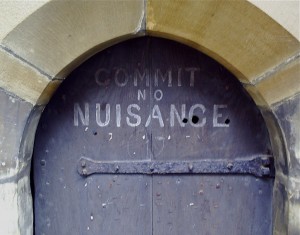
The appellant, Mr K, was a tenant of Circle 33. He had given an undertaking to the Court “not to engage, or encourage others to engage, in conduct capable of causing a nuisance or noise” in proceedings brought following complaints about noise from the flat below. There were further complaints of noise and Circle 33 sought committal. The Court below found that although the undertaking was clumsily worded and didn’t say that Mr K wasn’t to allow or permit activities likely to create noise to take place, as a tenant Mr K was responsible for ensuring that did not happen. Mr K was committed to prison for eight weeks.
On appeal, Mr K contended that the Judge has misconstrued the undertaking, there was no clear evidence that he had committed any act of nuisance or encourage others to do so and that in any even the sentence was maifestly excessive.
Held: The words ‘allowing’ or ‘permitting’ did not appear in the undertaking, so the Judge had misdirected himself. There was no finding that Mr K was personally responsible, although the noise had come from his flat. Then, rather puzzlingly, the correct sentence would have been a suspended sentence to ensure future complaiance with the undertaking (this is puzzling because there was, on the previous findings, no breach of the undertaking established. So presumably, this means the correct sentence if there had been a breach).
A reminder, then, that an undertaking to the court is a serious matter and its terms should be clear and precise, so that it is clear when a breach has occurred, or what the undertaker must do to comply.